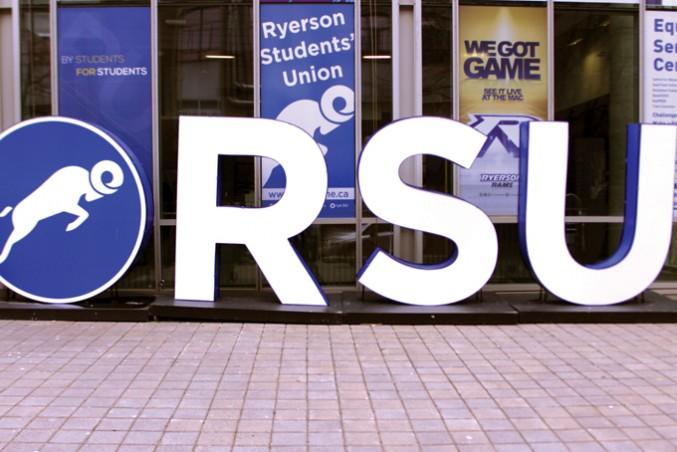By Keith Capstick
After a convoluted series of hirings and firings within the Ryerson Students’ Union’s (RSU) graduate council, grad students are left wondering how to make their voices heard within the RSU.
Across the country, universities with highly developed graduate studies programs boast full graduate students’ unions, which receive a student levy from each students’ tuition—just like the RSU does at Ryerson. Here, graduate students advocacy has to be taken on by the RSU, and the voices of each student are represented by a graduate council. But, as Rye’s grad programs continue to develop, there has been no increase in their representation at the RSU’s board level.
This year, $70,000 is allocated for the grad council’s programming of the RSU’s roughly $2 million proposed budget. All of the union’s decisions are made with the votes of just two graduate students, on a board over more than 30.
Over the past 15 years, Ryerson’s graduate studies enrolment has expanded from 50 to 2,600 students across both masters and PhD studies, according to Lauren Clegg, Ryerson’s Media Relations Officer. Those students pay $125.57 each to the RSU per year, making up $326,482 of their budget.
On June 24, Binish Ahmed, a policy studies PhD candidate, was appointed by RSU president Obaid Ullah as deputy chairperson student life and events for the RSU’s graduate council. The committee is comprised of a decision-making executive, just like the one that leads the RSU, who makes decisions on behalf of students and then relays them to the board.
Over the past 15 years, Ryerson’s graduate studies enrolment has expanded from 50 to 2,600 students across both masters and PhD studies
Her appointment followed the student life and events position not being filled during last year’s student election. This means that Ullah had to appoint a candidate, who would then be ratified to their position by the board of directors. Finally, after the board approves the candidate, they would have to run in a by-election in November to democratically solidify their position.
For Ahmed, this ratification process will never come to fruition because she was removed from her position on Aug. 5, soon after she was appointed. Ahmed said this happened abruptly, and without notice or cause just days prior to her position being voted upon by the board.
“Ullah wrote to me, saying he had ‘reversed’ my appointment, in other words he had terminated me,” Ahmed said, in an statement. “This was the first time that I and other graduate executives learned about Mr. Obaid Ullah’s intentions to remove me and appoint someone else.”
But, according to Ullah, the abrupt end to her time with the RSU was caused by Ahmed refusing to run in the November byelection and asking for a much larger honorarium than the customary $1,000 per semester stipend awarded to members of the grad council. He said the final straw was her attending the July 20 board meeting and making “accusations” of his executive team.
“I never had an opportunity to respond to her email and she emailed me asking to meet. She probably got upset, came to the board meeting and she made heavy accusations,” Ullah said. “After the meeting I talked to a few board members and decided she wouldn’t be a member of the team… she’s not a team player and one of the biggest things with any organization is that you need team players.”
Ahmed also mentioned a displeasure with the person who was chosen to fill her role, Hussain Bokhari, who she said was hired in conflict of interest because he is a friend of Ullah’s.
While Ullah maintains that the two are not friends and were not in contact prior to Bokhari’s appointment, he did say they knew each other prior to the matter. Ullah served as an executive on the Ryerson Engineering Student Society (RESS) in 2014 while Bokhari served as a RESS executive in 2013. The familiarity between current representation and the people that they’re hiring isn’t unfamiliar to the RSU. Last year, the RSU was criticized for the hiring of general manager Natasha Campagna, who had a history working within the Ryerson Commerce Society (RCS)—now Ted Rogers Student Society—where last year’s RSU president Andrea Bartlett had also worked.
After Ahmed showed up at the last two RSU board of directors meetings, this issue was finally brought forward with a formal motion at the Sept. 26 board meeting. The motion asked for Ullah to make a formal apology to Ahmed, and to erase “false statements from the July 20 and Aug. 10 board meeting minutes that slander and malign Ms. Ahmed.”
Ahmed has yet to be paid for her time at the RSU.
Carolyn Qin, the chair of the grad council and a voting RSU board member, said that the lack of graduate student representation within their students’ union is a problem.
“We don’t have the bylaws and policies in place for us and where we stand and I think that’s something that we need to change,” Qin said. “With all these changes [to graduate studies at Ryerson], the students’ union structure hasn’t really reflected those changes.”













Leave a Reply